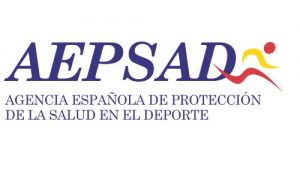WADA stands for the World Anti-doping Agency and officials at this respected governing body are not happy with the Spanish football organization’s lack of regular and consistent drug testing over the past eleven months. In spring of last year, officials from the World Anti-doping agency called out AEPSAD (Agencia Española para la protección de la Salud en el Deporte), which is the official anti-doping body of Spain, for being non-compliant with drug testing rules.
 Shortly following the official rebuke, AEPSAD’s lab, which had been accredited by WADA in the past, received a suspension. After the suspension, the lab was not permitted to run anti-doping tests and analysis, for blood or for urine. It received the suspension due to missing an important deadline for updating its test procedures.
Shortly following the official rebuke, AEPSAD’s lab, which had been accredited by WADA in the past, received a suspension. After the suspension, the lab was not permitted to run anti-doping tests and analysis, for blood or for urine. It received the suspension due to missing an important deadline for updating its test procedures.
Since the announcement, just fifty-seven tests have been performed on players from La Liga who don’t compete within Europe. In addition, Spain’s 2nd division hasn’t carried out any tests for banned substances (anabolic steroids and PEDs). The results of the fifty-seven tests which were performed will be deemed null anyway, as the lab that performed them is considered to be non-compliant with WADA regulations.
WADA is Disappointed in AEPSAD
WADA official had hoped that other governing bodies would push for stronger, more consistent testing. However, two other governing bodies, UEFA and FIFA, did not make moves in that direction. Since Spain is a leading football nation worldwide, no drug tests for almost a year doesn’t look very good for the country. It diminishes trust and tarnishes the image of the sport.
What Do Spanish Officials Say?
Spain responded to the rebuke by letting people know that tests for banned substances will probably start up again before too long, such as within a month. However, before this happens, WADA’s new global code will need to be formally approved by the government of Spain. The AEPSAD organization did let people know that it requested a signed agreement with UEFA and FIFA, but that those organizations declined to take part. Both organizations which were asked to sign felt that it was outside of their responsibilities as governing bodies for football.
Since some of the world’s premier players participate in La Liga football, all of this is a bit shocking. Hopefully, in the future, a testing schedule which everyone approves of will be put into place. Without it, people may begin to believe that AEPSAD is trying to cover for athletes who are doping in order to score goals and excel in other areas of football game play.







